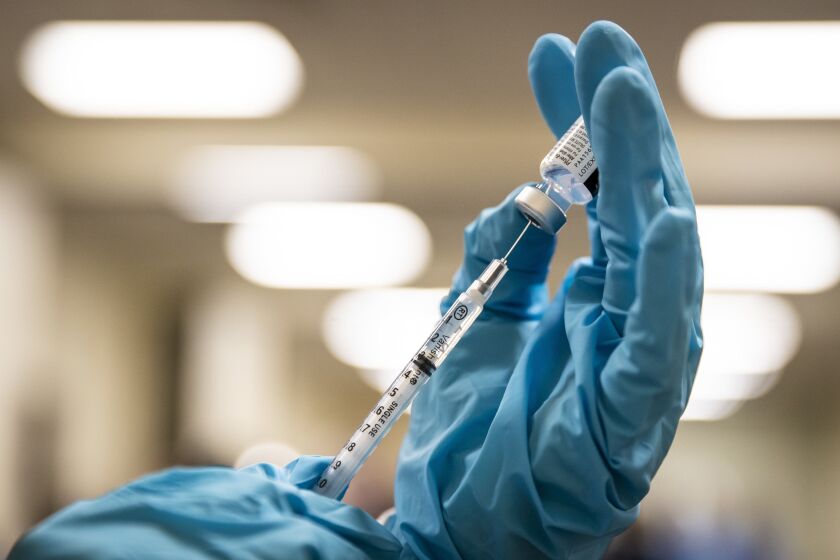Chicago is at least a month or two away from vaccinating essential workers for COVID-19 and initially there won’t be nearly enough shots for the large group that includes teachers, police, grocery store employees, manufacturing workers and others, the city’s top health official said.
Dr. Allison Arwady said Tuesday that the city continues to focus on vaccinating as many health care workers both in and outside hospitals as well as nursing home patients and workers.
Next in line will be people 65 and older and essential workers. Arwady warned that the next priority groups will be so large that getting through vaccinations will take time even as the federal government promised to release more shots.
“There is not going to be enough vaccine for everybody right off the bat,” Arwady said, noting that the city is receiving up to 33,000 vaccine doses a week. “We have 360,000 Chicago residents over the age of 65 and we have hundreds of thousands of essential workers who have been in that prioritization group.”
The Trump Administration said it will release more vaccine to states, reversing an earlier decision to hold back shots so there will be supply for second doses that assure nearly full protection against the virus.
Saying she’s committed to making sure everyone vaccinated gets a second shot, Arwady wouldn’t predict what additional vaccine will mean, but noted it will be weeks or months before workers outside of health care get inoculated.
“We’d like to see some of this federal government conversation really settle out, understand what our vaccinating numbers look like,” Arwady said. “On the essential worker side, we don’t anticipate being able to move ahead there until really into the February-March timeframe.”
A workers’ rights group said the city must address dangers facing essential workers, many of them Black and Latino, who are not able to work from home and disproportionately suffer from the virus.
“To prevent the spread of the virus and to protect the hardest-hit communities, we must focus on the workplace as the epicenter of the pandemic,” said Shelly Ruzicka, spokeswoman for Arise Chicago.
Arwady acknowledged the risks but reiterated health workers are first in line because of their contact with sick people. There have been more than 54,000 Chicagoans who received the first dose and less than 14,000 who got the second shots, Arwady said.
“We are doing everything we can here to stay with the latest guidance but also do what is best for Chicago,” Arwady said. “We are working hard to make sure this vaccine is being prioritized for those at highest risk.”
The two vaccines approved for emergency use require second doses. The Pfizer vaccine is given three weeks after the first dose and the Moderna therapy requires a follow-up shot four weeks after the first.
U.S. Health and Human Services Secretary Alex Azar had said holding back the vaccine was necessary to make sure everyone vaccinated was given the second shot but now says vaccine manufacturing assures ample supply.
Gov. J.B. Pritzker and seven other Democratic governors wrote a letter to Azar last week calling the decision to hold back vaccine “unconscionable and unacceptable.”
President-elect Joe Biden said he’ll release shots to states.
So far, U.S. health officials oppose the idea of spacing out vaccine doses over a longer timeframe, a practice the British government recently adopted.
The problem with spacing is it’s not scientifically proven, said Richard Novak, a University of Illinois at Chicago professor who led a study of the Moderna vaccine. “This would have to be tested,” he added.
Brett Chase’s reporting on the environment and public health is made possible by a grant from The Chicago Community Trust.






